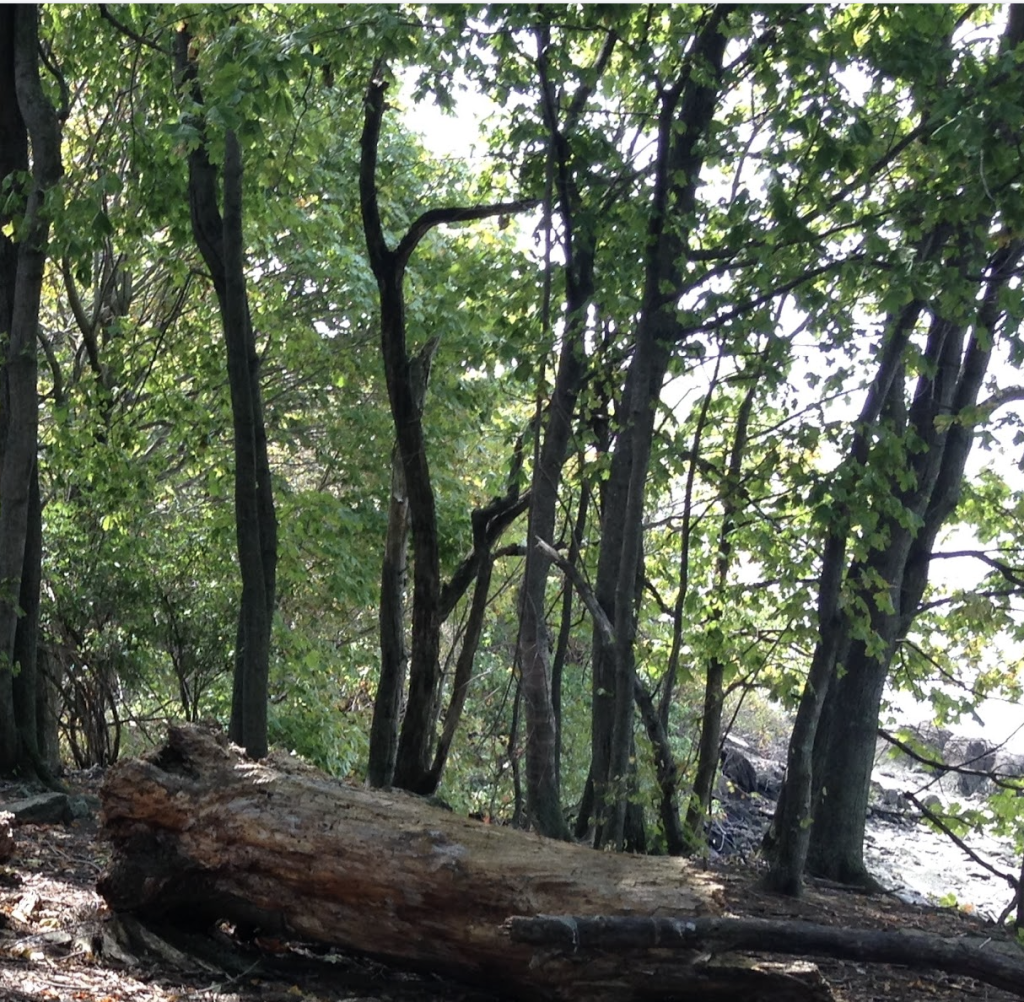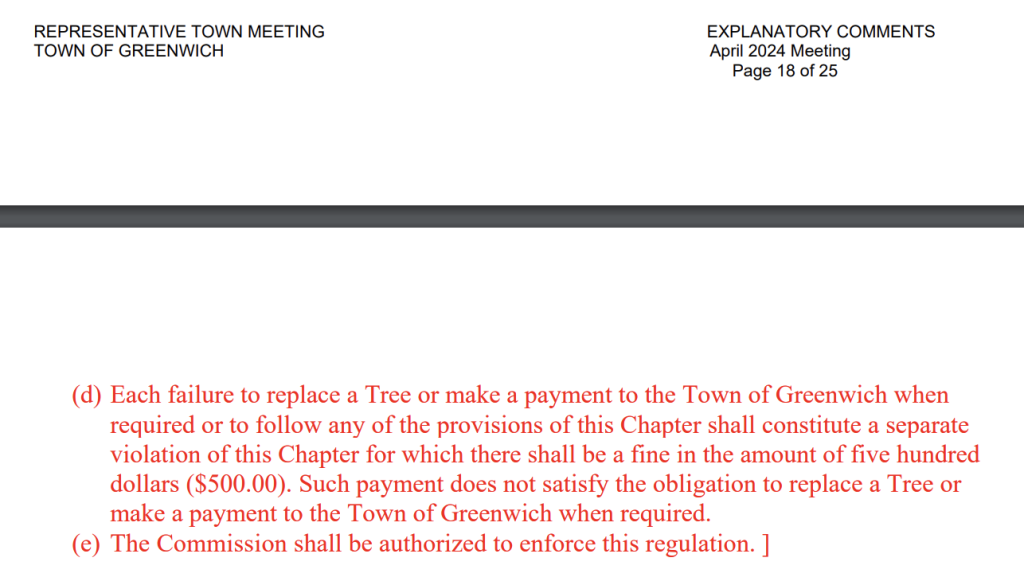
Please Follow us on Gab, Minds, Telegram, Rumble, Gettr, Truth Social, Twitter
The Greenwich Representative Town Meeting (RTM), the town's legislative body, has been asked to consider and act upon a resolution that was requested by 20 registered voters.
This resolution aims to update the town's tree ordinance, currently specified in Chapter 13. Trees, Shrubs and Woody Vegetation, thereby making it a priority to, “sustain and improve our natural environment and landscape” and noting the “dense tree canopies … are core components of the Town’s image and identity, and foster an important sense of place.”
The proposal cites a host of environmental benefits from trees, such as producing oxygen, providing shade, preventing soil erosion, controlling flooding, and reducing noise, as well as aesthetic benefits. The intention is also to prevent clear cutting of trees by developers, and to prevent "new residents from less verdant jurisdictions" from cutting their trees "because they want better views, they want more open space or some other reason."
The first changes to the Ordinance come in the definitions section, where the definition of a tree is changed from: "a woody plant, usually with one (1) main trunk, reaching a height of at least fifteen (15) feet in height when mature" to a much more broad definition: "any living woody, self-supporting plant that has a defined stem(s) with a DBH of at least two (2) inches."
Shrubs would then be defined as any woody plant that's not a tree.
There are some other definitional changes and recommended increases in fees for violations.
But the real juicy stuff starts with the addition of Sec. 13-19., which calls for a Tree Commission to to oversee, adjudicate and enforce Tree Ordinance policies. Even on private property.
In fact, an earlier draft of the Ordinance, perhaps more accurately, called Sec. 13-19 the "Private Property Tree Commission" since this section applies to private property owners.

The unpaid Commission would be composed of seven regular voting RTM members and two alternate members of the public. Three of the Commission members would be Town professionals. The other four members would be nominated by the Board of Selectmen after considering the Selectman's Nominations Advisory Committee recommendations, making this yet another one of First Selectman Fred Camillo's many Town Committees.
The Commission fully intends on issuing fees and fines to those who dare violate the new Tree Ordinance on their own private property.
The new ordinance would dictate the terms of tree removal on private property.

As currently written, if you wanted, for any reason, to remove a healthy tree that has a diameter of 13 inches or more, as measured at 54 inches above grade (aka "diameter at breast height" or "DBH"), you would require advance approval from the Commission. Same thing if you want to remove a grouping of eight trees or more with a diameter of two inches located within a quarter acre (known as a "grove"). Certain exceptions would apply.
To grant permission to remove a Tree, the Commission must determine within forty-five (45) days of receiving a complete application that either (1) the tree is in poor health or disease with an expected life span of less than two years; (2) the tree's removal is unavoidable because the tree poses a threat to human health, safety, and welfare; or (3) the negative impact on the local canopy caused by the tree's removal can be mitigated.
Property owners would be limited to cutting one tree during any 12-month period per acre of property, and no more than four trees in any 12-month period without approval from the Commission.
An earlier version of the Ordinance would have exempted The Greenwich Audubon Center, the Greenwich Land Trust and Greenwich, CT Riding & Trails Association from the Ordinance, but that exemption was missing from the explanos circulated in advance of the RTM's April 2024 Call.

If you want to remove a tree that is subject to the Ordinance, you'll have to shell out $25 (per tree) to apply for a permit, and wait up to 45 days for the Commission to decide whether you can remove a tree from your own personal property. If you remove a tree that falls under the Ordinance without first obtaining a permit, you will be required to replace it. Unless there's some kind of super hazard or the Town decides the tree presents a hazard to public safety or structure integrity.
There are further rules for protecting trees during construction and fines for rule violators.
For instance, the Commission would be empowered to levy a $500 per day per tree fine to any property owner and other person responsible for not adhering with the tree care standards referred to in the Ordinance during a construction project.
There are even rules dictating the requirements and specifications for the replacement of trees, including that property owners would be required to properly maintain replacement trees for a period of at least five years from the date of planting.
If you don't replace a tree, you could always just fork over a payment to the Town in the amount of the Tree's "assessed value" which would be based on the recommendation of the Commission using The Plant Guide for Appraisal as guidance. The town would use the money to plant a replacement tree on town property.
Each failure to replace a tree or make a payment to the Town when required to follow any of the provisions in the Ordinance would form a separate violation of the Ordinance and is subject to a $500 fine. Further, this payment would not satisfy the obligation to replace a tree or make a payment to the Town when required.
If the Town of Greenwich believes you may be violating the Ordinance, it may also "institute a civil action in court of competent jurisdiction for a mandatory or prohibiting injunction ordering the defendant to either correct the unlawful use of the property or cease the unlawful use."
The first read of this proposal is scheduled for April 8th.
Residents can contact the RTM here if they want to offer feedback.

